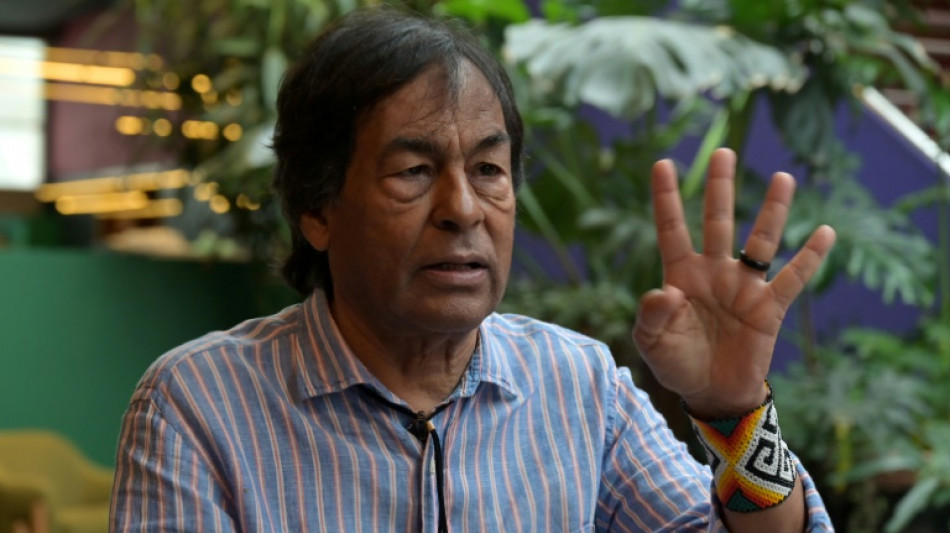
-
 US Congress impasse over migrant crackdown set to trigger partial shutdown
US Congress impasse over migrant crackdown set to trigger partial shutdown
-
AI's bitter rivalry heads to Washington

-
 South Korea hails 'miracle' Choi after teen's landmark Olympic gold
South Korea hails 'miracle' Choi after teen's landmark Olympic gold
-
England seek statement Six Nations win away to Scotland

-
 Trent return can help Arbeloa's Real Madrid move forward
Trent return can help Arbeloa's Real Madrid move forward
-
Battling Bremen braced for Bayern onslaught

-
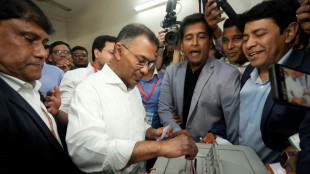 Bangladesh nationalists claim big election win, Islamists cry foul
Bangladesh nationalists claim big election win, Islamists cry foul
-
Tourists empty out of Cuba as US fuel blockade bites

-
 Tearful Canadian mother mourns daughter before Carney visits town shaken by killings
Tearful Canadian mother mourns daughter before Carney visits town shaken by killings
-
Italy dream of cricket 'in Rome, Milan and Bologna' after historic win

-
 Oscars museum dives into world of Miyazaki's 'Ponyo'
Oscars museum dives into world of Miyazaki's 'Ponyo'
-
Dieng powers Bucks over NBA champion Thunder

-
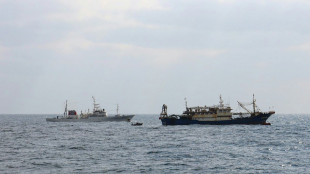 Japan seizes Chinese fishing vessel, arrests captain
Japan seizes Chinese fishing vessel, arrests captain
-
Bangladesh political heir Tarique Rahman poised for PM
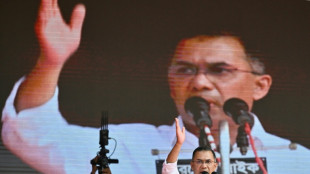
-
 Asian stocks track Wall St down but AI shift tempers losses
Asian stocks track Wall St down but AI shift tempers losses
-
Bangladesh's BNP claim 'sweeping' election win
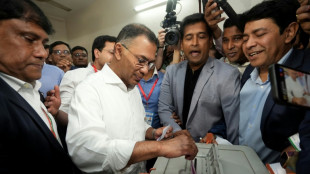
-
 Drones, sirens, army posters: How four years of war changed a Russian city
Drones, sirens, army posters: How four years of war changed a Russian city
-
Crowds flock to Istanbul's Museum of Innocence before TV adaptation

-
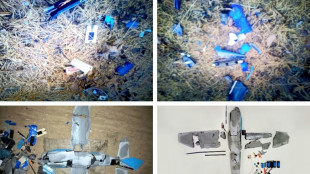 North Korea warns of 'terrible response' if South sends more drones
North Korea warns of 'terrible response' if South sends more drones
-
NASA crew set for flight to ISS

-
 'Punk wellness': China's stressed youth mix traditional medicine and cocktails
'Punk wellness': China's stressed youth mix traditional medicine and cocktails
-
Diplomacy, nukes and parades: what to watch at North Korea's next party congress
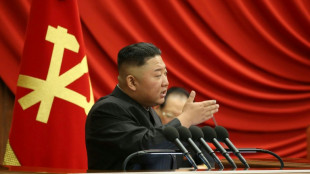
-
 Arsenal, Man City eye trophy haul, Macclesfield more FA Cup 'miracles'
Arsenal, Man City eye trophy haul, Macclesfield more FA Cup 'miracles'
-
Dreaming of glory at Rio's carnival, far from elite parades

-
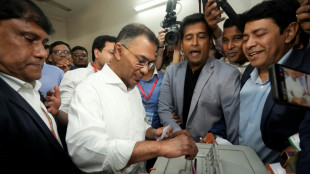 Bangladesh's BNP heading for 'sweeping' election win
Bangladesh's BNP heading for 'sweeping' election win
-
Hisatsune grabs Pebble Beach lead with sparkling 62

-
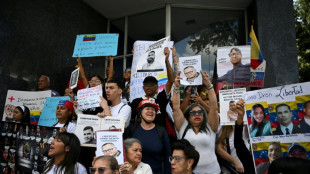 Venezuela amnesty bill postponed amid row over application
Venezuela amnesty bill postponed amid row over application
-
Barca taught 'lesson' in Atletico drubbing: Flick

-
 Australia's Liberals elect net zero opponent as new leader
Australia's Liberals elect net zero opponent as new leader
-
Arsenal must block out noise in 'rollercoaster' title race: Rice

-
 Suns forward Brooks banned one game for technical fouls
Suns forward Brooks banned one game for technical fouls
-
N. Korea warns of 'terrible response' if more drone incursions from South
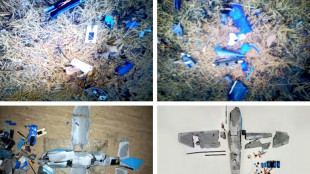
-
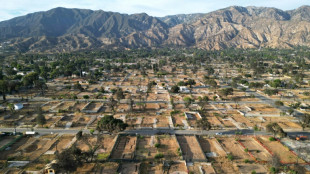 LA fires: California probes late warnings in Black neighborhoods
LA fires: California probes late warnings in Black neighborhoods
-
Atletico rout Barca in Copa del Rey semi-final first leg

-
 Arsenal held by Brentford to offer Man City Premier League title hope
Arsenal held by Brentford to offer Man City Premier League title hope
-
US snowboard star Kim 'proud' as teenager Choi dethrones her at Olympics

-
 Chloe Kim misses Olympic milestone, Ukrainian disqualfied over helmet
Chloe Kim misses Olympic milestone, Ukrainian disqualfied over helmet
-
Tech shares pull back ahead of US inflation data

-
 'Beer Man' Castellanos released by MLB Phillies
'Beer Man' Castellanos released by MLB Phillies
-
Canada PM to join mourners in remote town after mass shooting

-
 Teenager Choi wrecks Kim's Olympic snowboard hat-trick bid
Teenager Choi wrecks Kim's Olympic snowboard hat-trick bid
-
Inter await Juve as top guns go toe-to-toe in Serie A

-
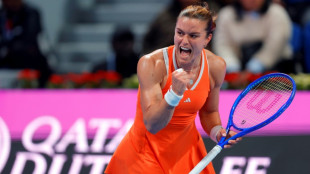 Swiatek, Rybakina dumped out of Qatar Open
Swiatek, Rybakina dumped out of Qatar Open
-
Europe's most powerful rocket carries 32 satellites for Amazon Leo network into space

-
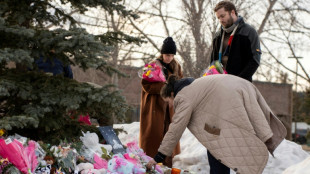 Neighbor of Canada mass shooter grieves after 'heartbreaking' attack
Neighbor of Canada mass shooter grieves after 'heartbreaking' attack
-
French Olympic ice dance champions laud 'greatest gift'

-
 Strange 'inside-out' planetary system baffles astronomers
Strange 'inside-out' planetary system baffles astronomers
-
Teenager Choi denies Kim Olympic snowboard hat-trick
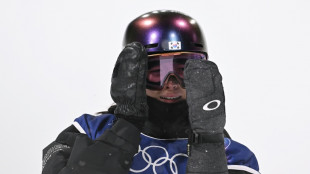
-
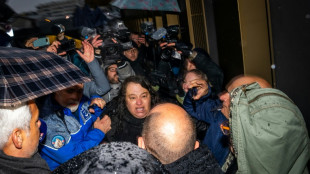 Swiss bar owners face wrath of bereaved families
Swiss bar owners face wrath of bereaved families
-
EU vows reforms to confront China, US -- but split on joint debt


Indigenous writer Ailton Krenak, postponing the end of the world
The year was 1987, Brazil was just exiting a long military dictatorship, and Indigenous writer Ailton Krenak stood before the country's constitutional assembly in a pristine white suit, smearing black paint across his face.
"Indigenous peoples have watered every scrap of Brazil's eight million square kilometers with their blood," the handsome young activist defiantly told the assembly, using a traditional mourning ritual to protest centuries of violence against native peoples.
Thirty-six years after that memorable protest, which helped ensure the nation's new constitution protected native land rights, Krenak achieved what he calls a new "historic reparation" last month, when he was chosen as the first Indigenous member of the Brazilian Academy of Letters.
Founded in 1897, the Academy is the rough equivalent of France's hallowed Academie Francaise or Spain's Real Academia.
Seen as a standard-bearer of Brazilian language and literature, the Rio de Janeiro institution is made up of 40 members known as the "immortals," who hold their seats for life.
Known for its hushed halls and hallowed rituals -- its members convene for formal gatherings in gold-embroidered uniforms -- it is perhaps an unusual spot for life-long rabble-rouser Krenak, 70.
"We're going to bring a little noise to that century-old silence," the philosopher, writer and poet told AFP in an interview in Sao Paulo.
The Academy "has always been closed to native peoples and dominated by (Brazilian) Portuguese."
Krenak says he hopes to use his seat in the institution to help shine a spotlight on Brazil's nearly 200 Indigenous languages.
"Through language, literature and the arts, Indigenous cultures can be perceived as living things, not just something from the past," he says, speaking in calm but razor-sharp sentences.
Despite the horrors of the colonial past, "we are alive," he adds. "We won."
- In the flesh -
A member of the Krenak people of southeastern Brazil, whose surname he bears, the writer has lived the Indigenous struggle in the flesh.
His people were expelled from their land around 1970, during the dictatorship (1964-1985), forcing him and his family into exile.
At 18, he left for the southern state of Parana to study "the colonizer's language," earning a journalism degree. It is the language in which he writes his books.
After enduring torture and persecution by the military regime, the Krenak only partly recovered their lands with the return to democracy. Their 600 remaining members were scattered across several states.
Krenak's own fight is rooted in their suffering.
Considered one of Brazil's leading Indigenous intellectuals, he has written a highly regarded body of work criticizing colonialism and capitalism, including the critically acclaimed essay "Ideas to Postpone the End of the World" (2019), translated into more than 10 languages.
The Indigenous leader, who is discreet on his personal life, married fellow activist Irani Krenak in 2000. They had three children, one of whom died in an accident. Another daughter from a previous relationship also died.
- Different vision -
Krenak rejects the notion that European colonizers brought "civilization" to the Americas.
In fact, they brought a way of life that divorced humankind from nature, leading to a world where corporations "devour forests, mountains and rivers," he writes.
Krenak proposes a different way of life, akin to that of the native communities who resisted colonialism, fiercely clinging to their land.
About four years ago, he moved to his people's land on the banks of the Rio Doce river, home to around 350 Indigenous people.
But even there, what he calls the "corporate monster" is inescapable. A case in point: a notorious mine dam collapse in 2015 that caused an environmental disaster on the river, a vital source of water and food for his people.
The accelerating destruction of nature affects everyone, Krenak says.
"It's not just Indigenous peoples who are threatened by the damage anymore. Now white people are, too," he says, wearing a striped shirt and traditional feather necklace.
For now, he says, he is "biding (his) time" hoping for political and social change.
But in the end, he says, he expects the Earth to move beyond humankind.
"My hope is that we'll be discarded as quickly as possible so the planet can continue its magnificent journey."
S.F.Warren--AMWN
